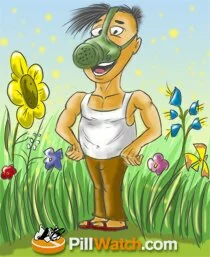
So, you have a hay fever. Unluckily, you are one of those who have sneezing, runny nose and itching eyes for some season of the year and you would probably think there’s a whole curse. There’s nothing you can do to make you feel better. False.
Unfortunately, you can't get rid of the allergy itself, but you can control symptoms with the help of the treatment and some self-care at home.
If you suffer from hay fever you should first of all know your allergen, the substances that provoke hypersensitivity. Next thing to do is to avoid this substance by all means.
What medicine can make be feel better?
The best treatment is to avoid contact with your allergen. Since this is close to impossible, you may want to take medication to reduce the symptoms. Your health care provider will decide which of the numerous medicines is the most suitable for you. The choice of it will often depend on which symptoms bother you the most.
1. Sweet antihistamine syrups and tablets - to fight your sneezing, itching and runny nose and eye symptoms. They prevent the histamine your body produces to the allergen from causing the allergic symptoms. But for blocked nose they are useless.
2. Antihistamine nasal sprays and drops – good and fast for sneezing, itching and runny nose. Only.
The effects of antihistamines do not last long. Caution - these medications may make you too drowsy to drive a car or operate machinery safely (better use it before bed time).
3. Nasal corticosteroids (corticosteroid nasal sprays). They reduce inflammation in the nasal passages and help to get rid of the most nasal symptoms - they reduce congestion (stuffiness) and swelling (runny and blocked nose), also reduce eye symptoms.
4. Nasal decongestants (containing sodium cromoglicate) and cromoglicate (containing decongestants) - to prevent nasal symptoms. However, nasal decongestants can cause a rebound effect and inflammation called rhinitis medicamentosa if overused.
5. Eye drops can be useful if eye symptoms are your biggest problem. Antihistamine eye drops and cromoglicate eye drops (containing sodium cromoglicate) provide fast relief from itchy, red, watery eyes.
6. Leukotriene inhibitors (Montelukast) in the form of tablet, chewable tablet, or granule forms – they reduce inflammation by keeping leukotriene inhibitors (substances that promote the inflammatory response seen during exposure to allergens) from producing swelling.
7. Cromolyn sodium - makes your mucous membranes less sensitive to allergens. It is available in aerosol and in eyedrops.
8. Immunotherapy (allergy shots) – when your symptoms don’t improve while you are trying to avoid allergen or to mild symptoms. In this case you are injected of small amounts of the known allergy-causing substance in order to create tolerance to the allergen and prevent the immune system producing too much histamine when this allergen encounters it. This method does not always help, but it can improve symptoms in many people.
Yes, pretty long list. Don’t take them all at once. Note, that some of them should be used for a while (very often before hay fever season) for the effect. And some of them give rapid effect, but should be used only for couple of days, as prolonged use can worsen symptoms. Also, some of these medicines have more serious side effects than others. Take it very seriously, find your way with your health care provider and stay under permanent supervising.
What you can do at home?
Your allergy does not always require medical treatment. If your fever is more of a nuisance than harm to health you should try something of these. You symptoms will improve over time.
· Avoid your allergen – avoid pollen, pet hair, and dust mites.
· Sooth your sore throat: gargle with warm salt water (cup of warm water with 1-2 tablespoons of table salt in it)
· Take some medicines to help your runny nose, and itchy throat and eyes (antihistamines) or your stuffy nose (a combination of an antihistamine and a decongestant may help)
· Start enjoying damp weather, especially close to evening.
· Use air conditioning and limit outside exposure during hay fever season. Avoid central heating.
· Close your window while you are sleeping.
· Don’t drive a car with the windows open.

· Forget about flowers in the house.
· Don’t keep pets indoors.
· Use Vaseline for your nose (inside).
· Try do not breathe, so to make sure you are not in the contact with the pollen or molds. Kidding. Just live your life!
The options of the hay fever treatment are numerous. But the most valued objective is given by those who, despite the occurrence of the symptoms, live their lives. Trying do not pay attention on having an allergy and trying to manage your symptoms somehow will help. Enjoy your life whatever it takes.
Valentyna Ant.
| Tip for you : Sign-in with Your OpenID and post faster, easier and with easy access to all your past posts. | |
|
Your Nick: |
















